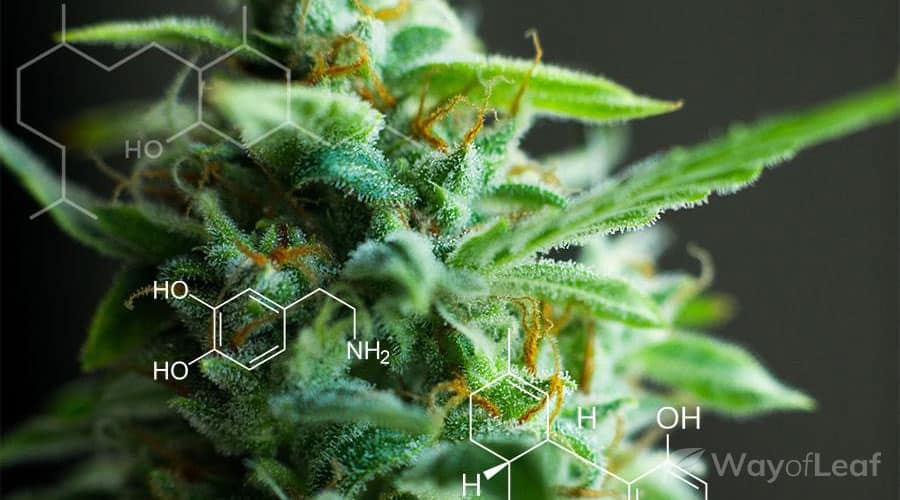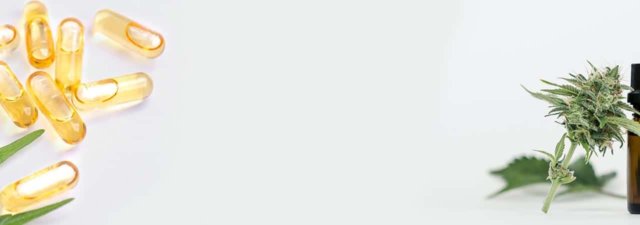While CBD and THC both offer psychoactive effects, only the latter causes an intoxicating high. As a consequence, a significant number of people eschew THC in favor of CBD. However, they don’t realize that combining the two could prove more effective than either cannabinoid alone. As long as you get the ratio right, you can mix the two without succumbing to a high.
Let’s examine the science behind why CBD works better with a certain level of THC.
Why Do People Try to Avoid THC?
THC is associated with getting stoned. It is understandable why consumers would try to steer clear. After all, employer drug screenings can uncover THC metabolites. Also, several states allow CBD but not THC. Once you go above the 0.3% THC threshold, you’re breaking the law in these locations. It is also the case where higher THC products come from cannabis rather than hemp. This is also illegal in certain states.
THC is associated with getting stoned. It is understandable why consumers would try to steer clear.
You can purchase full-spectrum CBD and CBD isolate products. The former contains trace amounts of THC, while the latter is almost entirely CBD. There is also broad-spectrum CBD, which contains dozens of cannabinoids but zero THC.
Full-spectrum CBD potentially gives you the best of all worlds. It comes from industrial hemp and contains a maximum of 0.3% THC. For the vast majority of users, even the upper end of the limit shouldn’t lead to intoxication. Moreover, you could receive a range of benefits that you may not get from CBD isolate or broad-spectrum products. This is due to a phenomenon known as the entourage effect.
Explaining the Entourage Effect
THC and CBD are just two of over 110 cannabinoids the cannabis plant produces. The best available scientific studies clarify that whole-plant cannabis extracts are superior to single compounds. This is due to the complex mix of cannabinoids, flavonoids, and terpenes, which interact synergistically to produce the entourage effect.

According to this theory, the therapeutic benefits of CBD are possibly amplified by the presence of even a little THC.
Ethan Russo is one of the main champions of the entourage effect. He wrote about it in the British Journal of Pharmacology in 2011 and Frontiers in Plant Science in 2018.
Recent mentions include this study published in Current Neuropharmacology in 2020. The researchers point out that adding terpenes to cannabinoids could help with anxiety and mood disorders.
How do THC & CBD Work Together?
Researchers are still trying to learn more about how CBD, THC, and other cannabinoids interact with our endocannabinoid system (ECS). We know that THC has a powerful binding affinity with the CB1 receptors in the ECS. Less is known about CBD’s effects. The long-held assumption that CBD has little or no effect on the CB1 receptors is being challenged. It may not bind to CB1 receptors like THC, but it does have an indirect impact, at least.
CBD seems to raise the levels of endocannabinoids, such as anandamide, in the body. The cannabinoid also targets various receptors, such as serotonin and GPR55. It is through these pathways that CBD could help alleviate anxiety, muscle spasms, and other issues.
When you mix CBD and THC, the CBD effectively gets in the way of THC’s attempts to bind with the CB1 receptor. This helps explain why CBD reduces the intoxicating effects of THC.
However, even though they have varying pharmacological properties, they can have similar benefits. What happens is that they act through different mechanisms. For instance, both THC and CBD alone could help relieve pain. However, combine the two, and you could potentially benefit from an even better level of pain relief.
Now, let’s look at research into standalone CBD and when it is mixed with THC.
CBD Is Building an Impressive ‘Résumé’
CBD has shown promise for its powerful antipsychotic properties in human trials of treatment-resistant schizophrenia.
Furthermore, in May 2017, a clinical trial tested the effects of CBD on the debilitating epileptic condition Dravet’s Syndrome. The study found that CBD reduced seizures by half in 43% of subjects who received the medication. The trial helped prompt the FDA to approve a CBD oral solution known as Epidiolex, predominantly for seizure cases, in June 2018.
CBD is also considered an option for depression, anxiety, pain, diabetes, neurodegenerative disease, addiction, head trauma, and many more conditions.
For instance, a 2015 study in Neurotherapeutics found that CBD was potentially useful in helping with anxiety disorders. A study published in The Permanente Journal in 2019 discovered that CBD helped fight insomnia and reduced anxiety.
The list of positive results from CBD studies is growing quickly, and the cannabinoid’s track record is promising. However, there is also plenty of evidence that mixing CBD with THC has many benefits.
What Research Says About Combining CBD and THC
According to multiple studies, CBD is more effective when used together with THC. Here’s an overview of a few relevant studies.
- A 2010 study looked at the combination of CBD and THC on patients with intractable cancer-related pain. The researchers found that patients could tolerate the mix better than a pure THC extract.
- A 2012 study for the Journal of Psychopharmacology reported that CBD inhibits THC-elicited paranoid symptoms and hippocampal-dependent memory impairment.
- A study published in Frontiers in Pharmacology in 2019 looked at how THC and CBD worked together in zebrafish models of neuro-hyperactivity. The researchers looked at several CBD: THC ratios and found that 1:1 was the most effective.
Both THC and CBD have value. However, we need a lot more research to find out the right ratio.
CBD & THC – Is There a Golden Ratio?
The answer is ‘no,’ which means you’ll need to experiment to see how it impacts you. Here is a quick overview of common CBD to THC ratios (CBD is mentioned first) and their likely effects.
- 1:4: This is high-THC territory and is not for individuals with a low tolerance. You WILL feel stoned. Depending on the strain, you could feel energetic or completely sedated.
- 1:2: You have already entered intoxication territory, especially if you are a novice. You can expect to feel light-headed and euphoric.
- 1:1: This is considered the ideal balance by many researchers. You will probably experience a moderate level of intoxication, though it depends on the cannabinoid content. A strain with 10% of each will likely prove more intoxicating than one with 4%.
- 2:1: Most users feel energized and clear-minded at this level. The CBD blocks most of the ‘high’ that THC would otherwise provide.
- 4:1: Once you go to this ratio, you’re unlikely to experience much of a high. This is an excellent daytime option.
- 20:1: At this level and beyond, there is practically no chance of intoxication. Indeed, you’re getting towards the ratio offered by some CBD oils derived from hemp. These could have 5% CBD against 0.25% THC, for example, thus remaining within the Farm Bill’s rules.
Final Thoughts on Why You Need a Little THC
THC and CBD both have potential medical benefits. Humans have used whole plant medicines for millennia, and CBD is part of this tradition. Originally, many people believed that pure CBD was a lot more effective than its full-spectrum counterpart. However, recent research has revealed that the two compounds are often more effective when used together.
Humans have used whole plant medicines for millennia, and CBD is part of this tradition.
Patients looking to give their CBD supplements an extra boost should consider adding a little THC to the mix. Please check your state’s rules on cannabis use before considering THC. If you don’t live in an adult-use state and don’t have an MMJ card, THC from cannabis remains illegal. CBD products with over 0.3% THC are also prohibited.


![What Is CBDV? [Effects, Strains, and More]](https://wayofleaf.com/wp-content/uploads/2019/09/mj_what_is_cbdv_1920-min-640x225.jpg)





![Why CBD Oil Won’t Work for Everyone [Answered]](https://wayofleaf.com/wp-content/uploads/2018/03/wol_1920x450-67-640x225.jpg)



